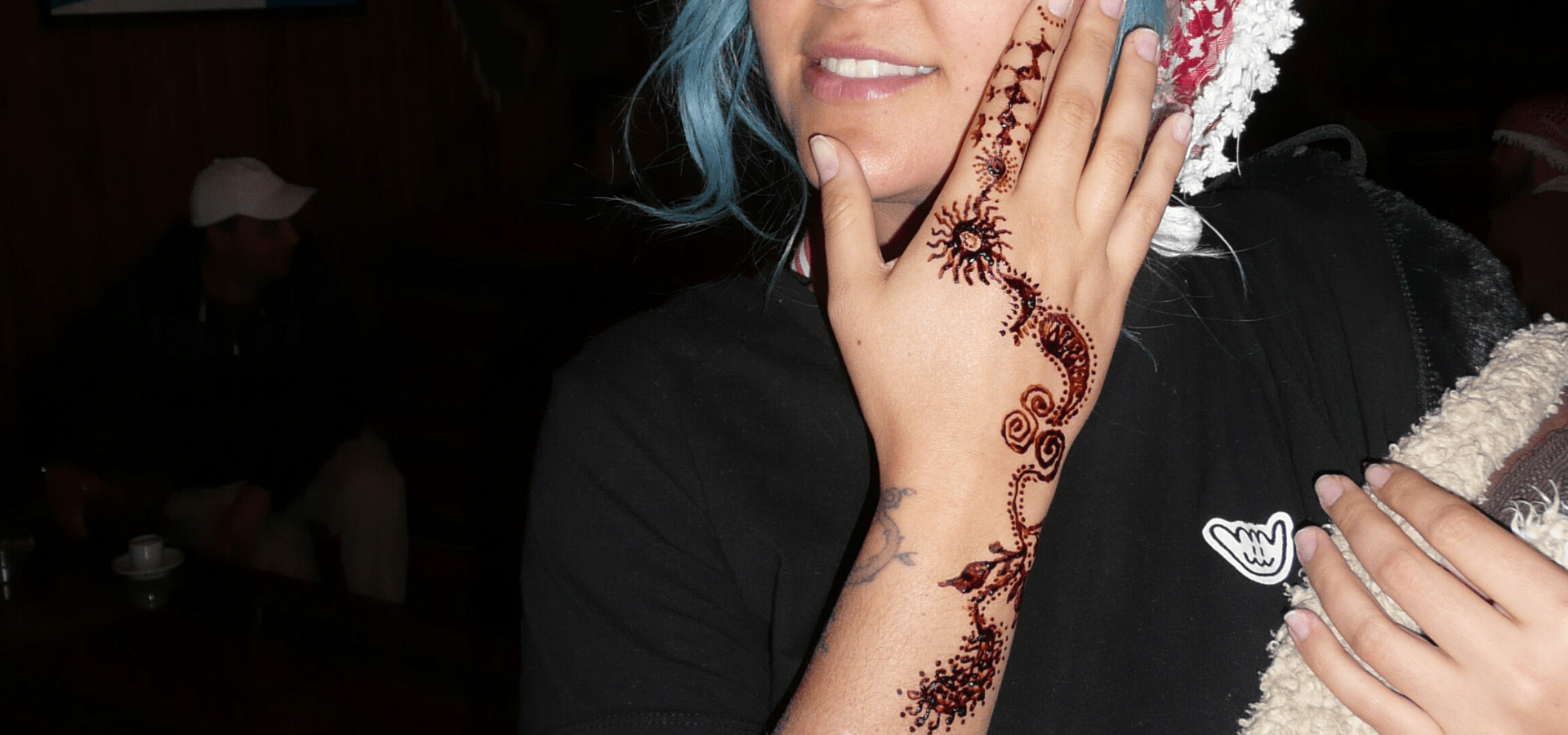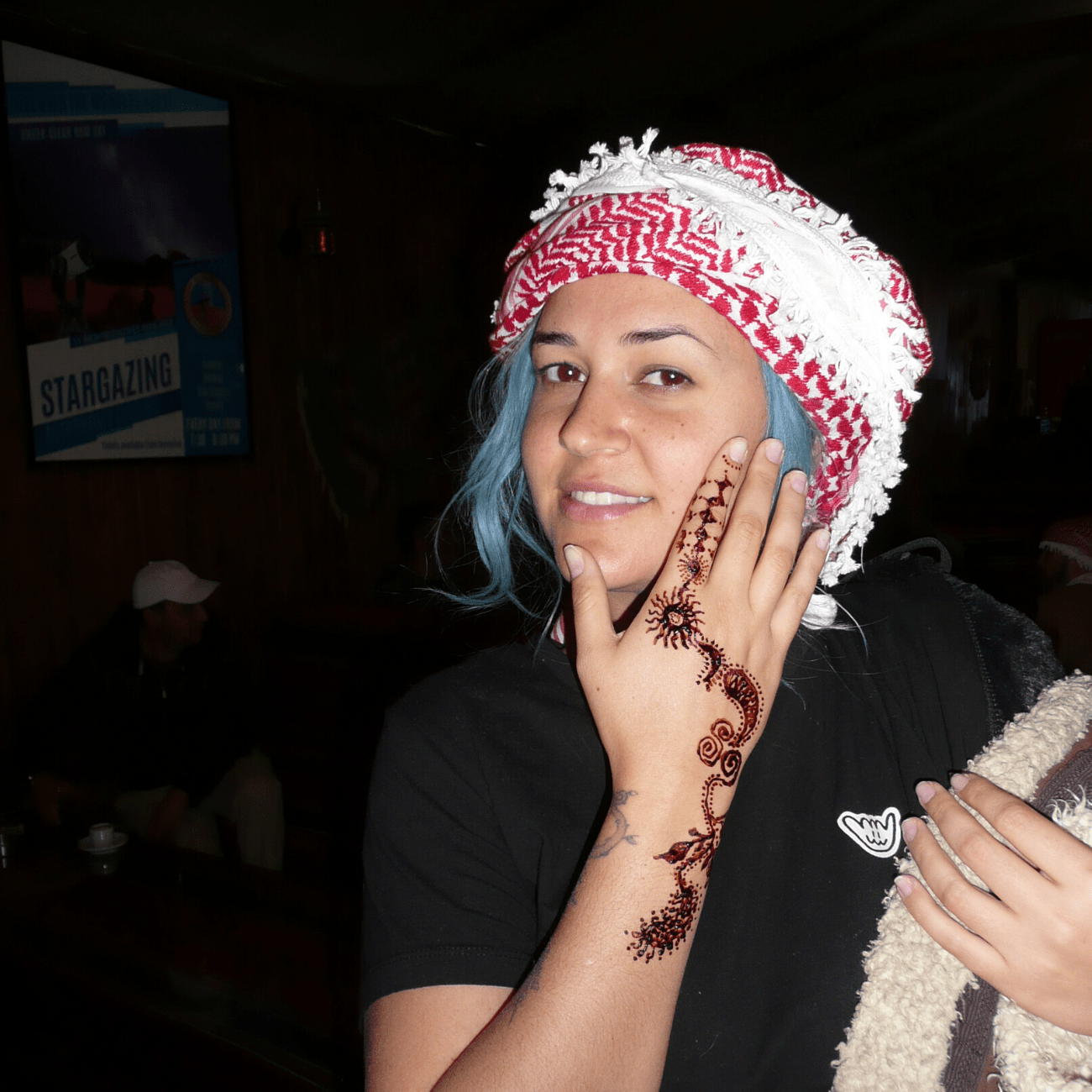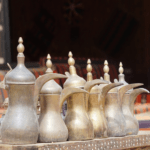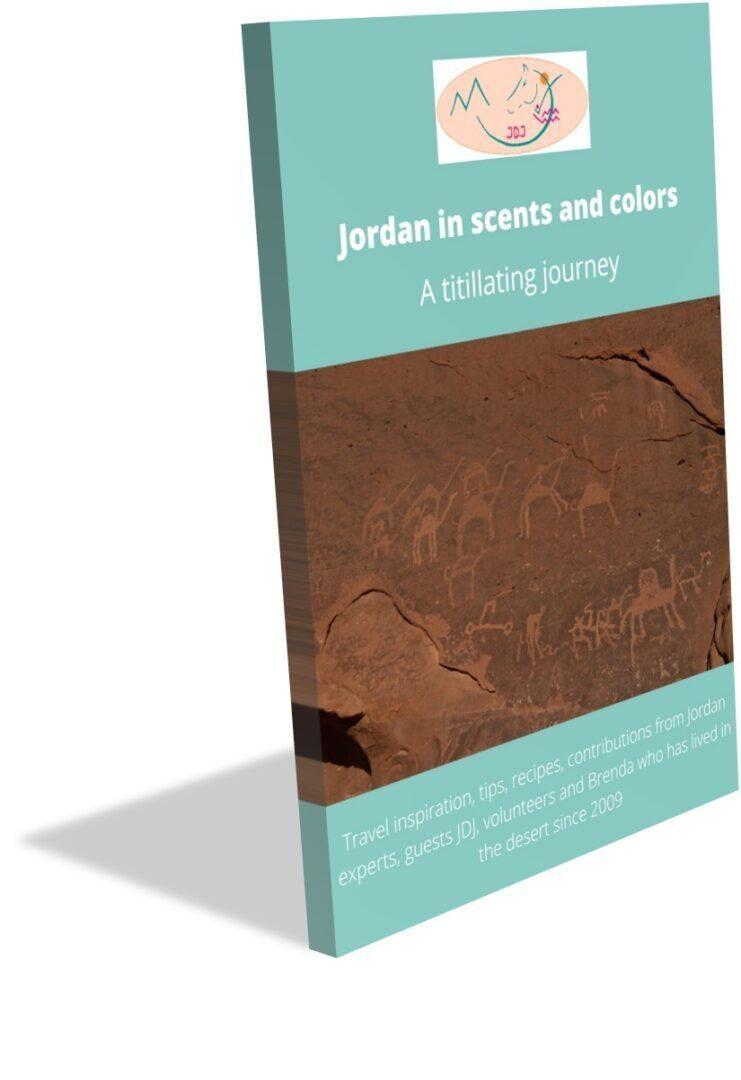Henna makes beautiful and wards off the evil eye in Jordan
If there is one thing that is widely used in relation to beauty in Jordan it is henna. Henna present at every party. Not only as decoration, but also for its medicinal properties, and as an incantation against the evil eye.
The most beautiful women come from the east
Women from the Middle East are often seen as the most beautiful women in the world. In any case, they pay a lot of attention to emphasize their beauty. There are many programs on TV about applying make-up, clothing, hair styling and facial care. And they are eagerly followed. The way in which the hijab is worn is also subject to fashion. By observing students, you can see exactly which dress is “in”.
Girls and secret treasure chests
The children are raised from an early age that getting married is just about the biggest event in life. In every conversation you have, it doesn’t matter with whom or where, getting married is in the conversation. Little girls go wild when another member of the family gets married. They get new clothes, talk about what they’re wearing, how they’re going to wear their hair, and what make-up they’re using.
Then the new clothes are often shown to me. Then they get their toiletry bags to be emptied so I can see what they have. Afterwards they show their jewelery boxes with all the odds and ends they have collected over time. And finally, there is often a kind of treasure chest with special things to keep. They treat it like real secrets. Often their sisters are not allowed to hold it. But I do, as long as I show respect, ask good questions and give praise.
Whitening creams instead of natural products
If a certain cream is “hot”, you immediately notice that there is a run on such an article. And here too, the more expensive the better applies. Nowadays you see more Whitening creams than ordinary care creams. Light skin has a higher status and is seen as more attractive. In the pharmacy you usually buy your cosmetics and there are some perfumeries in the big cities with well-known western brands. However, make up can be found everywhere and often at very low prices in the souk. And then there are the fantastic herbalists where you can get the strangest substances such as snake oil for example. Unfortunately, everything that comes from the west is nowadays more desirable than the natural products that the Bedouin women used to use. These are now mostly seen as old-fashioned by Pinterest and TV commercials.
Rituals at weddings
But there is one natural beauty product that still occupies a prominent place in the beauty rituals of women and men in the Middle East: henna. It has been used for thousands of years. In Yemen they call henna mehendi. The main reason for using henna in the desert is to avert the evil eye and to lower the body temperature. The green paste lets your skin cool down immediately.
Pure henna cannot be replaced by a ready-made product from the West. On the contrary, the West has lovingly embraced this ingredient as a pure hair dye. Henna is often used as decoration during official celebrations, such as the sugar festival and the sacrificial feast. For weddings, the second day is usually the henna festival. Everyone deals with this in a different way because the traditions of weddings are also changing. At Bedouin weddings, which usually last three days, I have seen buckets of henna being made. Henna powder made with secret family ingredients of herbs, tea or coffee, lemon juice and olive oil to increase the durability of the henna tattoo.
The only safe henna (black henna can cause severe burns) is the pure plant that turns orange-red on the skin. The prepared powder is placed in plastic bags, decorated with a ribbon or bow. On the second day, the wives of the groom’s family go to the bride’s house with baskets full of henna bags. They dance to modern Arabic music. Some women use the tabla to drum to the traditional songs sung a cappella by the Bedouin women. The baskets pass from hand to hand above the dancers’ heads, eventually offering the valuable bags to the bride, her guests and the wives of the groom’s family.
Traditions and trends
Every day the bride wears a different dress. During the henna party often a colored one. Nowadays, the bride often prepares henna bags in special bridal boxes decorated with ribbons in advance to hand out to the guests on the last day, the official wedding day. At home, the little girls’ hands are already decorated with henna motifs. Older women often apply the henna as a whole on the inside of the hands and fingertips including the nails, and on the soles of the feet. Some brides go to a beauty salon to have the henna applied in beautiful patterns. My new neighbor got married two weeks ago and still has beautiful fine henna decorations on her hands from the wedding.
Women put the henna motifs to each other as well the children. A few understand the art of applying very beautiful motifs with it. Usually the figures are roughly executed. There are trends for applying henna in places other than the hands and feet: above the décolleté, on the back and on a shoulder blade and as a piece of jewelry, for example. Or on arms and legs as a running motif. Others just “paint” their nails with henna.
Tea and coffee for an orange-red color
The henna is mixed with water or lemon juice for coloring the hair. To get a dark orange-red color, do not use water, but coffee or tea. The henna is usually applied with a sturdy plastic bag that has been twisted into a fine cannula and where the henna is squeezed out. Very occasionally, a syringe with a thick needle is used, from which the sharp point has been filed. But it is also available ready-made in a tube with a thin cannula at the end to create beautiful patterns.
After the henna has been applied, the motifs are dabbed with lemon juice and dissolved sugar to intensify the color and extend the shelf life of the henna decoration. The substance must be absorbed for more than an hour, after which the henna remains of the decoration are scrubbed. The skin is then treated with olive oil to make the orange-red decoration last longer.
In hair, in beards and on your body
Henna is good for many things. Do you know that men seem to love the smell of henna? And not just on the bridal night. Women like to dye their hair with it. It makes the hair shine, closes the hair cuticles, makes it less brittle and it works against dandruff and hair loss. The black hair remains quite dark but gray hair turns bright orange. And so you occasionally see men in the street or on the bus with an orange beard. On the nails and cuticles, henna works against infection, inflammation, pain and irritation. And it is used as anti-aging and wound healing for the skin. In addition, it works as a remedy for fever, headaches and joint and rheumatic pains. Or as an anti-inflammatory, against insomnia, as a detox and blood pressure lowering agent.
I myself once took a henna wrap for my entire body. It gave my fair skin a sunny glow. We also provide our horses with henna to protect the skin against all kinds of diseases or to cool the legs and keep the hooves healthy. And of course also to avert the evil eye…
This blog is posted on the website of “De wereldwijven” (The world’s wives)
With love from the desert,
Brenda van den Brink
Marhaba (welcome) from Jordan. Brenda has been in an intimate relationship with the country of Jordan since 2003. In love with the desert, passionate about the Arabian desert horses, she left for Jordan in 2009 to live as a Bedouin in her beloved desert. The first 9 months in a tent, in the middle of nowhere. Her son and the horses around her. After a number of nomadic wanderings in different places, including Petra, she settled in the beautiful Wadi Rum desert. Together with colleague and “brother” Abdullah Alzwaydeh, she founded Jordan Desert Journeys. A real “family” business to let guests experience an authentic Bedouin life experience in the desert. An unforgettable journey, often together with the horses, camels, adopted stray dogs and local employees.





